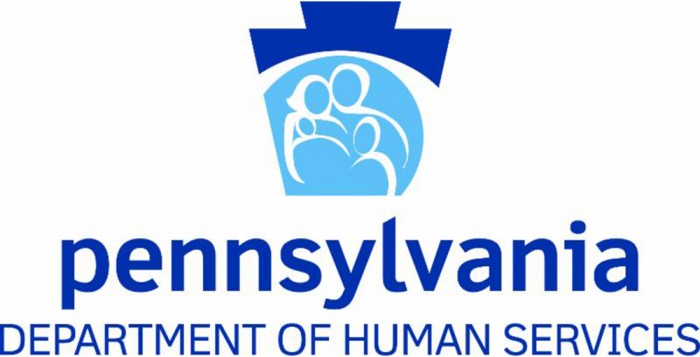Disability Service Providers Face ‘Unprecedented’ Labor Shortage
Rob Reid, President of RCPA Member Access Services, Inc., to Retire on October 1, 2021
Call for Provider Presentation Proposals for PA Autism Training Conference
Pennsylvania Autism (Virtual) Training Conference
Conference Dates: October 5–7, 2021
The Office of Developmental Programs (ODP) is requesting proposals that focus on the lived experience of professionals who provide support for individuals with autism. As a provider, you probably experienced many challenges and adversity in the past months, both related and unrelated to the COVID-19 pandemic. How can we take the hardships, learn from them, and integrate that knowledge as we move into the future?
During PATC 2021, we will be highlighting the concept of post-traumatic growth that from difficult experiences comes opportunity and the chance for progress. We want to give you the opportunity to share your experience, your stories of ordeals and difficulties, and of recovery and resilience.
Further instructions, including how to submit your story, can be found here. Submissions are due by August 6, 2021.
Webinar July 28, 2021 — The Better Care Better Jobs Act: What Activists Need to Know
Join us for a webinar on “The Better Care Better Jobs Act: What Activists Need to Know.”
How the Better Care Better Jobs Act (BCBJA) Addresses the Unmet Needs of Aging Adults, People with Disabilities, Family Caregivers, and Direct Care Workers
Wednesday, July 28 6:00 pm–7:00 pm (Eastern)
Register here.
Come and learn the basics about the Better Care Better Jobs Act and how it would transform Medicaid Home and Community-Based Services (HCBS). This proposed $400 billion in funding will increase access to services as well as make a long-overdue investment in the direct care workforce that delivers these services to people with disabilities and aging adults all over the country.
You will hear from lawmakers about what we can expect in Congress and from consumers about the importance of Medicaid-funded HCBS and policy priorities that enable people with disabilities and older adults to live in their homes and communities. CART and ASL will be provided.
Speakers:
- U.S. Senator Robert Casey (Pennsylvania) (invited)
- U.S. Representative Jamaal Bowman (NY-16) (invited)
- Andraea LaVant, President and Chief Inclusion Specialist, LaVant Consulting
- Alene Shaheed, Older Adult HCBS recipient and Self-Advocate
- Moderator: Ai-jen Poo, Director, Caring Across Generations and the National Domestic Workers Alliance
Organized By: The Arc of the United States, ACLU, AAPD, ANCOR, ASAN, Justice in Aging, Caring Across Generations, and National Domestic Workers Alliance
Co-Sponsored By: Care Can’t Wait (pending), Disability and Aging Collaborative, and the Consortium for Citizens with Disabilities
OSHA COVID-19 Health Emergency Temporary Standard (“ETS”)
From ANCOR:
The Occupational Safety and Health Administration’s (“OSHA”) COVID-19 Health Emergency Temporary Standard (“ETS”) became effective for healthcare settings when published in the Federal Register on June 21, 2021.
Since publication, we’ve received questions, comments, and concerns from ANCOR membership concerning whether the ETS applies to home and community-based services. Unfortunately, the new regulations are not industry specific making it difficult to apply universal standards for whether a service falls within the scope of the ETS. As service delivery differs by state and provider, each provider will need to conduct an individual analysis of both the service provided and setting delivered to determine appropriate compliance under the ETS.
Attached, please find a brief scope summary with questions for consideration to support your individual analysis of whether the services you provide fall within the scope of the ETS. Also attached as a companion piece, please find Guide Consulting’s breakdown of the ETS with key requirements shared last month on the ACC. For further reference, OSHA also posted a webinar breaking down the scope and requirements here.
ANCOR will be submitting written comment requesting additional guidance on applicability to home and community-based services. Written comments on the ETS are due by August 20, 2021 and can be submitted electronically for Docket No. OSHA-2020-0004 via the Federal eRulemaking Portal at www.regulations.gov.
Thanks and please do not hesitate to reach out with questions or concerns.
——————————
Lydia Dawson, J.D.
ANCOR | Director of Policy, Regulatory and Legal Analysis
571.932.5375 |
——————————
What’s New at ATECH: July 2021 Newsletter
DHS, York City and County Officials Urge Pennsylvanians to Apply for Rental Assistance
FOR IMMEDIATE RELEASE
July 26, 2021
York, PA – Department of Human Services (DHS) Acting Secretary Meg Snead today joined York County President Commissioner Julie Wheeler, York City Mayor Michael Helfrich, Representative Carol Hill Evans, and Community Progress Council CEO Robin Rohrbauh to discuss the upcoming end of the federal eviction moratorium and urge Pennsylvanians at risk of eviction or utility shutoffs because of COVID-19 to apply for assistance available through the Emergency Rental Assistance Program (ERAP).
ERAP can help people who are facing eviction pay past due and upcoming rent or pay utility bills or other costs necessary to help them be safely housed. Pennsylvanians experiencing housing instability or at risk of eviction are strongly urged to begin their ERAP application as soon as possible and not wait until the eviction moratorium ends. The Centers for Disease Control and Prevention (CDC)’s federal moratorium on evictions put in place due to the COVID-19 pandemic will end after July 31, 2021.
“For nearly 18 months, Pennsylvania and the nation have endured the instability, anxiety, and dangers of a global pandemic. The federal moratorium on evictions was a reprieve to keep people safe and housed through the worst of these public health and economic crises, but we must act now and use this historic investment available through ERAP to prevent avoidable evictions and housing insecurity,” said Acting Secretary Snead. “A safe, stable place to call home is foundational to good health and overall well-being, and it is essential as we continue to get our communities back on track and recover from this crisis. If you or your tenants are behind on rent or having trouble paying utility bills, start your ERAP application now and let this program help you stabilize and move forward.”
“Throughout the entirety of the pandemic, our community has faced and met unforeseen challenges with honor and grace. As we continue getting closer to the light at the end of the tunnel, we must be cognizant that certain federal protections, such as the CDC’s moratorium on evictions, will be expiring. Fortunately, the Emergency Rental Assistance Program provides a lifeline for renters, landlords, and utility providers who have been negatively affected by the COVID-19 pandemic. I urge all those eligible and in need of assistance to apply for the program before the July 31st deadline. If anyone has any questions, please reach out to our office.”
“The Emergency Rental Assistance Program is a valuable lifeline to residents of York County who have been impacted financially by COVID,” said Robin Rohrbaugh, President & CEO of Community Progress Council. “This program is an incredible opportunity for tenants to not only get through this pandemic but set themselves up for long-term financial success. The time to apply for this funding is now.”
The Wolf Administration established the ERAP in partnership with the General Assembly through Act 1 of 2021 to distribute $569 million to Pennsylvania households through partnerships with local leaders. An additional $278 million in rental assistance was directly allocated to Pennsylvania’s largest counties by the federal government, making a total of $847 million available to support renters and landlords feeling the strain of this economic insecurity across Pennsylvania. Counties are reporting data on the Act 1 distribution of funds monthly to DHS that are available online here. Counties and localities that received a direct allocation report on this funding to the United States Treasury, which is reporting data here. In total, $133 million has been distributed to more than 30,500 households in Pennsylvania as of June 30, 2021.
Funding for ERAP comes from the Consolidated Appropriations Act of 2021, and further rental assistance funds included in the American Rescue Plan Act were appropriated in Act 24 of 2021 signed earlier this month by Governor Wolf. These resources will be available to support renters soon.
Households may be eligible for up to 18 months of assistance to cover past-due or future rental and/or utility payments. The amount of a household’s monthly rent or utility bills does not preclude eligibility, but the amount of ERAP assistance provided to a household is determined by program administrators at the county level. Assistance can be provided to a tenant for future rental payments, and for unpaid rental or utility arrears that were accrued on or after March 13, 2020, on a residential rental property. Counties may choose to provide additional assistance to eligible households if funds remain available.
Either tenants or landlords can apply for this assistance, but a tenant does not need a landlord’s permission to apply and use this assistance. This program is an opportunity to help ease circumstances for both parties, so landlords and tenants are strongly encouraged to work cooperatively to secure this stabilizing assistance. ERAP is overseen by DHS at the state level but administered locally by county and municipal partners. Pennsylvanians can learn how to apply in their county of residence online.
To qualify for assistance, a household must be responsible to pay rent on a residential property and meet each of the following criteria:
- One or more people within the household has qualified for unemployment benefits, had a decrease in income, had increased household costs, or experienced other financial hardship during or due directly or indirectly to the COVID-19 pandemic; AND
- One or more individuals in the household can show a risk of experiencing homelessness or housing instability; AND
- The household has an income at or below 80 percent of area median income, which varies by county. Income limits by county are available on the DHS website. Resources (like bank accounts and cars) are not relevant to ERAP eligibility.
Applicants will need to provide the following information: head of household’s personal information; income information for all household members 18 and older; rental lease and amount owed; landlord’s name and contact information. If applying for utility assistance, applicants must provide utility expenses and utility provider information.
For more information on ERAP, promotional materials, state allocation program data, and to learn how to apply, visit DHS’ website.
NOTE: Video bytes of Acting Secretary Snead are available for use in coverage of ERAP and are available to download here.
MEDIA CONTACT: Erin James
Capitolwire: GOP Leader Urges PA Executive Agencies to Begin Planning to Reinstate Regulations
Capitolwire: GOP Leader Urges PA Executive Agencies to Begin Planning to Reinstate Regulations Suspended Because of the COVID-19 Disaster Emergency
The General Assembly, thanks to the power restored to it by Pennsylvania voters, terminated Gov. Tom Wolf’s COVID-19 disaster emergency in June, which means many of the actions taken by executive agencies under the auspices of that declaration have come to an end, with others on track to end in the near future.
Hundreds of existing state regulations were waived or suspended by various Commonwealth agencies while the declaration was in effect, and even with the termination, lawmakers worked with the Wolf administration to keep nearly 500 suspended until the fall, specifically Sept. 30.
On Monday, House Majority Leader Kerry Benninghoff, R-Centre, sent letters to the Department of Health and the Office of Administration reminding them the Sept. 30 deadline is coming and urging the agencies to be ready to reinstate the suspended regulations, as well as work with the legislature to identify those that could be reformed or permanently repealed.
Within that context, Benninghoff, in his letter to the Health Department, singled out telehealth regulations, stating, “Since your department does have jurisdiction relative to telehealth services provided in Pennsylvania, I want to make it clear nothing in current law prohibits telehealth services from being provided at pre-pandemic levels should the regulatory framework return to normal.”
(Source: Capitolwire, July 27, 2021)
If you have any questions, please contact Jack Phillips, Director of Government Affairs.

















